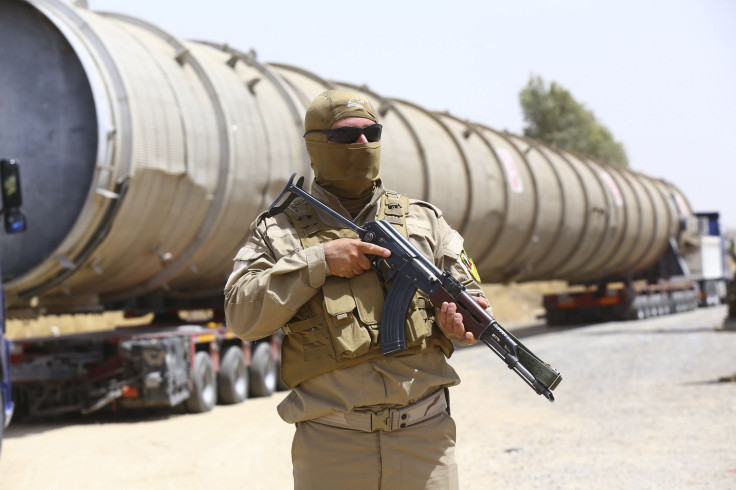ISIS Oil: Kurdish Government In Iraq Denies Reports Of Transport Through Its Territory To Turkey

More than three weeks after Russia displayed satellite images to show that the Islamic State group was shipping its oil to Turkey for sale, the Kurdish Regional Government in Iraqi Kurdistan has finally issued a response. The government denies all claims that the Sunni militant group is transporting oil from the territory it controls through Iraqi Kurdistan to Turkey.
An official from the KRG, Kifah Mahmoud, said the Islamic State group, also known as ISIS, does not transport its oil through the Iraqi Kurdish region and said the satellite images Russia provided as evidence are not tankers belonging to the extremist group. He said that despite Russia's claims, his government is not turning a blind eye to the ISIS oil trade.
That claim, though, can't account for the massive amounts of oil that ISIS has been able to get from its territory in Iraqi Kurdistan to refineries in southeastern Turkey and to the port of Ceyhan near Adana.
Although ISIS lost control of major oil wells and refineries in Iraqi Kurdistan such as the Baiji complex, it is still operating in the region. The group is still in control of two oilfields in western Iraqi Kurdistan, Qaiyarah and Najmah, where it is producing about 20,000 barrels of oil a day. The fields also have two power stations and connect to small pipelines that lead directly to Mosul, the largest city ISIS controls.
At the peak of its campaign against government troops in Iraq in the summer of 2014, ISIS exported millions of dollars' worth of oil daily, according to a recent report by George Kiourktsoglou, a researcher at the University of Greenwich in England.
ISIS exported about 15 percent of its daily oil production to the port of Ceyhan for sale on the high seas. That means the Sunni militant group must have either trucked the oil it extracted in Iraq and Syria to Ceyhan or put it in a pipeline. The only major pipeline to Ceyhan begins in Iraqi Kurdistan.
In an address to reporters on Friday, Gen. Sergei Rudskoy, director of the Main Operations Center of the Russian General Staff, said that because of the increasing number of airstrikes in Syria, oil smugglers traveling to Turkey have changed their route.
Rudskoy said the destination of the oil trafficking is Turkey, but that ISIS changed its route because of U.S. airstrikes. Now, he said, the group travels through Mosul and the Iraqi Kurdish city of Zakho.
The KRG began exporting crude in May 2014 using the Kirkuk-Ceyhan Pipeline. Baghdad could at one point access it, but fighting and damage to the infrastructure shut the central government off. The Kurdish government, though, hoping to revive its economy via the oil trade, began exporting through its own independent pipeline that connects to the larger Kirkuk-Ceyhan route. There are also several smaller pipelines throughout Iraqi Kurdistan that connect to the big pipeline.
The oil sector, and all of its transactions, were and still are overseen by the KRG, led by President Masoud Barzani.
© Copyright IBTimes 2025. All rights reserved.





















